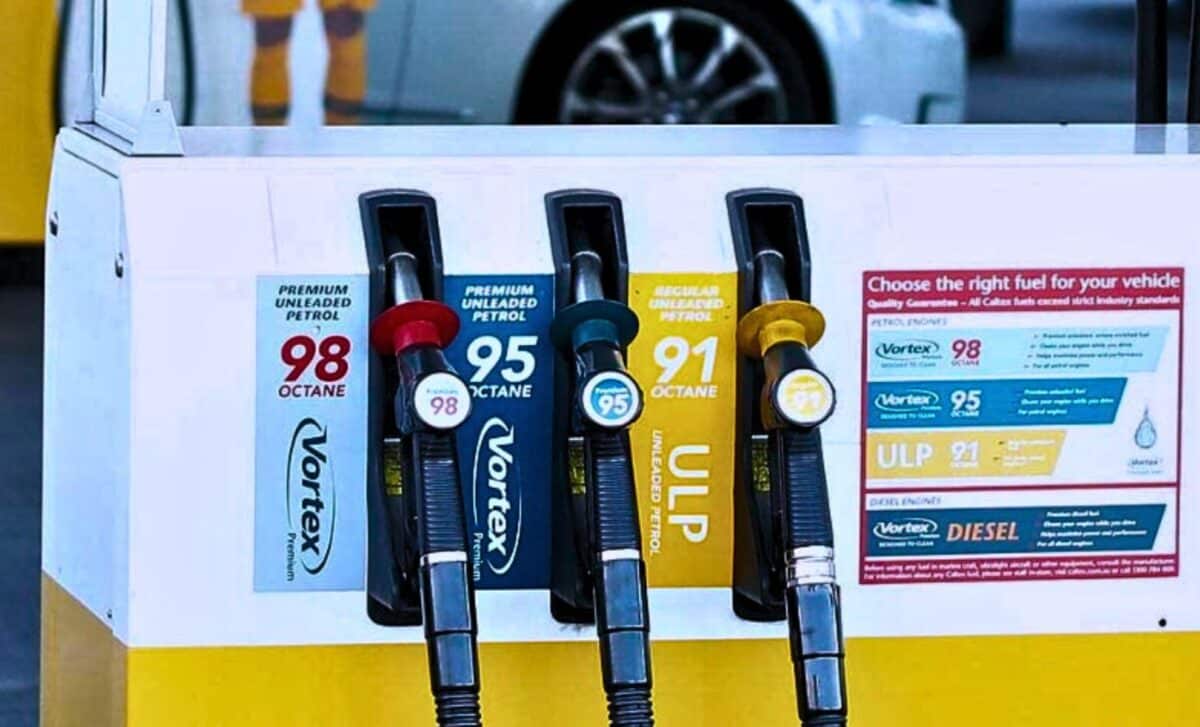Mixing petrol grades, such as 91, 95, or 98, can be a concern for drivers, especially when higher-octane fuels are unavailable. Understanding how octane ratings work and their impact on your vehicle is essential to ensure safe and efficient performance.
What Are Octane Ratings and Why Do They Matter?
Octane ratings are a measure of fuel stability, specifically its resistance to pre-ignition or “knocking” under high pressure and temperature in your engine. This stability is denoted by the Research Octane Number (RON):
- 91 RON: Regular unleaded petrol, commonly available in countries like Australia, the United States, and Canada.
- 95 RON: Premium unleaded petrol, mandated for many modern and performance vehicles.
- 98 RON: High-octane premium fuel, often marketed as “Ultra” or “Performance” grade by brands such as BP Ultimate, Shell V-Power, or Caltex Premium.
Engines designed for higher-octane fuel require it for efficient combustion. Lower-octane fuels combust prematurely under pressure, causing the phenomenon known as knocking, a metallic pinging sound that can damage the engine over time.
Why Some Vehicles Require Premium Fuel
High-performance or turbocharged engines, such as those found in Audi, BMW, or Porsche models, often require premium 95 or 98 RON petrol. This is because these engines operate at higher compression ratios, which increase the likelihood of pre-ignition with lower-octane fuels. The Commonwealth Department of Environment and Energy in Australia classifies fuels with 95 RON or higher as “premium.”
The NRMA (National Roads and Motorists’ Association) highlights that premium fuels enhance power delivery, reduce detonation (pinging), and improve combustion efficiency. These benefits are crucial for maintaining optimal engine performance and preventing long-term wear.
Mixing Petrol Grades: When Is It Acceptable?
Mixing petrol grades can be a practical solution, provided it aligns with your engine’s design and minimum requirements. Here are key scenarios:
- Vehicles designed for 91 RON:
Mixing 91 with 95 or 98 RON petrol is safe. The resulting octane level will exceed the minimum requirement, and the car will function without issue.
Example: A standard sedan, such as a Toyota Corolla or Honda Civic, can run efficiently on 91 RON petrol and won’t experience adverse effects from blending with higher-octane fuels. - Vehicles requiring 95 RON or higher:
Mixing with 91 RON petrol reduces the overall octane rating below the required threshold. This can cause knocking, reduce efficiency, and damage sensitive engine components. Always adhere to the minimum octane level specified by the manufacturer.
Example: A Volkswagen Golf GTI or Ford Mustang EcoBoost requires 95 RON or higher to prevent knocking. - Unintentional mixing or emergencies:
If higher-octane fuel isn’t available, a one-time mix of 91 and 95 RON might not cause immediate harm, but it’s essential to refill with the correct grade at the earliest opportunity. Prolonged use of insufficiently rated fuel can lead to costly repairs.
Benefits of Premium Fuels: More than Just Octane
Premium fuels such as BP Ultimate 98, Shell V-Power, or Caltex Premium 98 are engineered with additional benefits beyond octane levels:
- Cleaner Combustion: Premium fuels often contain detergents that clean fuel injectors and intake valves, enhancing efficiency and reducing deposits.
- Improved Power and Acceleration: For engines tuned for high-octane fuel, these blends provide smoother and more responsive acceleration.
- Better Fuel Economy: Higher octane allows for more precise combustion, improving mileage in compatible vehicles.
However, for cars designed to run on 91 RON, the added benefits of premium fuels may not justify the cost.
Risks of Mixing Petrol with Diesel
Mixing petrol and diesel is a critical mistake that can lead to severe mechanical issues. Petrol damages diesel engines by reducing lubrication, causing wear on high-pressure components. Conversely, diesel clogs the fuel system in petrol engines, requiring extensive cleaning or replacement of parts.
What Not to Do
One critical rule to follow is never mixing unleaded petrol with diesel. The two fuel types are incompatible and can cause severe damage to your engine and fuel system. If a mistake occurs, professional assistance is necessary to rectify the issue.









